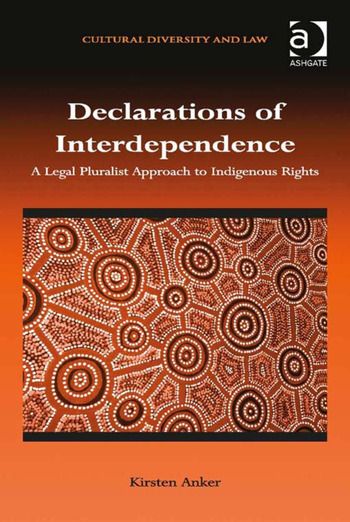We are now closed for the Christmas and New Year period, returning on Monday 5th January 2026. Orders placed during this time will be processed upon our return on 5th January.

This book takes up the postcolonial challenge for law and explains how the problems of recognition are tied to an orthodox theory of law. Constructing a theory of legal pluralism that is both critical of law's epistemological and ontological presuppositions, as well as discursive in engaging a dialogue between legal traditions, Anker focuses on prominent aspects of legal discourse and process such as sovereignty, proof, cultural translation and negotiation.
With case studies and examples principally drawn from Australia and Canada, the book seeks to set state law in front of its own reflection in the mirror of Indigenous rights, drawing on a broad base of scholarship in addition to legal theory, from philosophy, literary studies, anthropology, social theory, Indigenous studies and art.As a contribution to legal theory, the study advances legal pluralist approaches not just by imagining a way to 'make space for' indigenous legal traditions, but by actually working with their insights in building theory.The book will be of value to students and researchers interested in indigenous rights as well as those working in the areas of sociolegal studies, legal pluralism and law and cultural diversity.